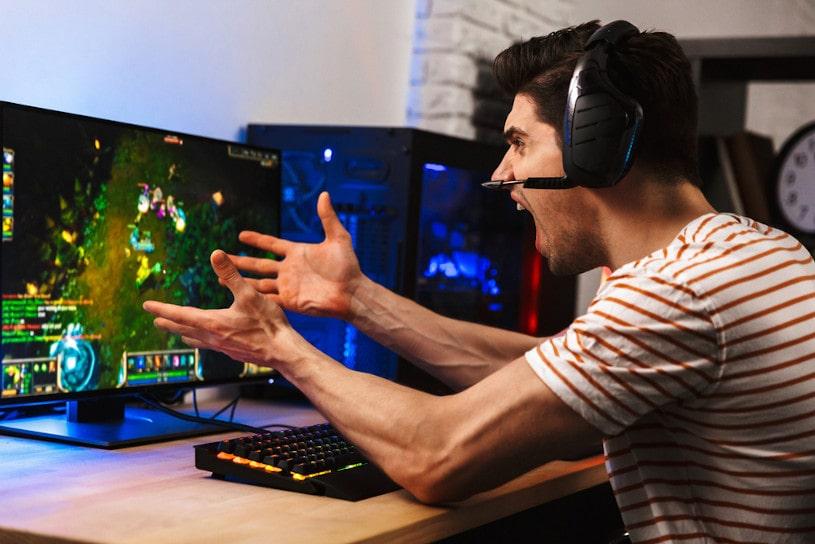Online gaming has become an integral part of modern entertainment, with millions of people around the world engaging in various forms of digital play. While gaming offers numerous benefits, it also presents certain risks, particularly when it comes to mental health. The impact of online gaming on mental health is a topic of ongoing debate, as experts and researchers explore both the positive and negative effects. This article delves into the pros and cons of online gaming’s impact on mental health, providing a balanced perspective on this complex issue.
Pros of Online Gaming on Mental Health
- Stress Relief and Relaxation
One of the most widely recognized benefits of onlineZeus Slot gaming is its ability to provide stress relief and relaxation. Engaging in a game can offer a temporary escape from the pressures and demands of daily life. For many players, gaming is a way to unwind and decompress after a long day. The immersive nature of online games allows players to focus on the game world, diverting their attention away from real-world stressors and providing a sense of calm and enjoyment.
- Cognitive Development and Problem-Solving Skills
Online gaming can also contribute to cognitive development and the enhancement of problem-solving skills. Many games require players to think critically, strategize, and make quick decisions. These mental exercises can improve cognitive functions such as memory, attention, and spatial reasoning. Games like puzzle games, strategy games, and role-playing games (RPGs) challenge players to think on their feet and develop creative solutions to complex problems, which can translate into improved cognitive abilities in real life.
- Social Interaction and Community Building
Contrary to the stereotype of the isolated gamer, many online games foster social interaction and community building. Multiplayer games, in particular, require players to collaborate, communicate, and work as a team to achieve common goals. This social aspect of gaming can lead to the formation of friendships and connections with people from around the world. For individuals who may struggle with face-to-face social interactions, online gaming offers a platform to connect with others, share experiences, and build a sense of belonging.
- Emotional Resilience and Coping Mechanisms
Online gaming can also play a role in developing emotional resilience and coping mechanisms. Through gaming, players often face challenges, setbacks, and failures, which require them to persevere and try again. This experience can build resilience, teaching players to handle frustration and disappointment in a controlled environment. Additionally, gaming can serve as a healthy outlet for emotions, providing a space to process and manage feelings such as anger, sadness, or anxiety in a constructive way.
- Educational Opportunities and Learning Enhancement
Many online games have educational elements that can enhance learning and provide educational opportunities. Games designed with educational purposes in mind can teach subjects such as math, science, history, and language skills in a fun and interactive way. Even non-educational games can promote learning by encouraging players to research strategies, learn about different cultures, or develop an interest in technology and game design.
Cons of Online Gaming on Mental Health
- Addiction and Compulsive Behavior
One of the most significant risks associated with online gaming is the potential for addiction and compulsive behavior. The immersive and rewarding nature of games can lead to excessive play, where individuals prioritize gaming over other important aspects of life, such as work, school, and relationships. Gaming addiction can result in negative consequences, including sleep deprivation, neglect of responsibilities, and a decline in physical health. In severe cases, gaming addiction may require professional intervention to help the individual regain control over their gaming habits.
- Social Isolation and Loneliness
While online gaming can promote social interaction, it can also contribute to social isolation and loneliness if not balanced with real-world social activities. Some players may become so engrossed in their gaming worlds that they withdraw from face-to-face interactions with family and friends. Over time, this isolation can lead to feelings of loneliness, depression, and a sense of disconnection from the real world.
- Increased Anxiety and Stress
Although gaming can be a source of stress relief, it can also lead to increased anxiety and stress for some individuals. Competitive games, in particular, can create a high-pressure environment where players feel intense stress to perform well or win. This pressure can result in heightened anxiety, especially if players are overly invested in the outcome of the game. Additionally, exposure to toxic behavior or harassment in online gaming communities can contribute to stress and negatively impact mental well-being.
- Negative Impact on Sleep and Physical Health
Excessive online gaming can have a negative impact on sleep and physical health. Many gamers play late into the night, which can disrupt their sleep patterns and lead to sleep deprivation. Lack of sleep is associated with a range of mental health issues, including depression, anxiety, and cognitive impairment. Moreover, prolonged gaming sessions often involve extended periods of inactivity, which can contribute to physical health problems such as obesity, poor posture, and eye strain.
- Exposure to Toxic Environments
Online gaming communities are not immune to toxic behavior and harassment. Players may encounter negative experiences such as cyberbullying, verbal abuse, and discrimination within online gaming spaces. Exposure to these toxic environments can have a detrimental effect on mental health, leading to feelings of anger, frustration, and sadness. For some individuals, repeated exposure to toxic behavior can contribute to a negative self-image and reduced self-esteem.
Conclusion
The impact of online gaming on mental health is multifaceted, with both positive and negative aspects. While gaming can offer numerous mental health benefits, such as stress relief, cognitive development, and social interaction, it also presents risks, including addiction, social isolation, and exposure to toxic environments. As with many activities, moderation and balance are key. By understanding the potential pros and cons of online gaming, individuals can make informed decisions about their gaming habits and take steps to ensure that their gaming experiences contribute positively to their overall mental health and well-being.

